Using String Skipping to See Scales Differently
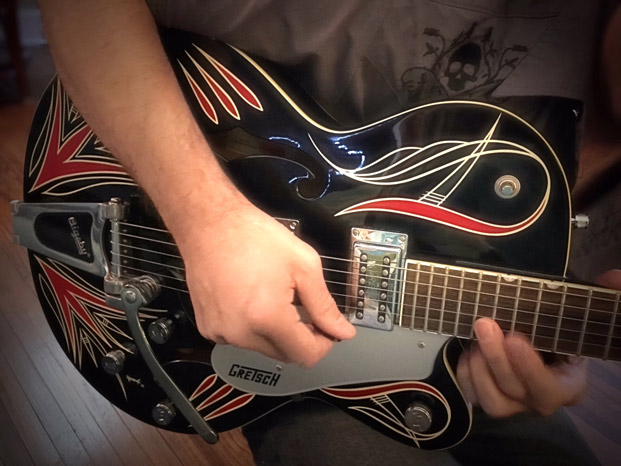
When you first learn the three-note-per-string and/or single position seven-note scale, you learn the patterns starting on the low E string and work your way up to the high E and back.
You do this for each of the seven patterns up the neck, practicing and perfecting your scales. This is great! The only problem is, this is how you are training your hands and brain to approach them.
Rather than viewing the scales as the available notes you have to choose from in a given key/mode, the order of the notes sometimes becomes how you rely on playing them in an improvising and/or composing situation. There is absolutely nothing wrong with this; it has worked fine and beautifully for hundreds of years. The melody for “Joy to the World” is simply a descending major scale. Learning to approach your scales in a different way will shake things up and hopefully change your habits of approaching scales in only an A-to-Z fashion.
String skipping is mostly associated with being a shred technique, covering a lot of ground quickly on the guitar by skipping over adjacent strings. The approach I am presenting is not so much a shred thing, but more of a way to know the scale on only two strings at a time, rather than all six, as most people generally learn them. If anything, this will force you to know the notes of the scale better, rather than relying on muscle memory to get through them.
Remember the most important thing when playing music is to consciously create, rather than go through the motions of learned patterns that are embedded in our brains from constant repetition. For the examples, I have written the scales out in the key of F. Once the concept is learned, it should be applied to all keys/modes. As you play through these, you will notice different shapes that repeat across each set of two strings according to the degree of the scale you start on.
Eventually you will see that if, for instance, you start a pattern on the third degree of the scale, you will be playing one shape; if you start on the root of the scale, you will be playing a different one, etc.
String set 1, High E and G strings:
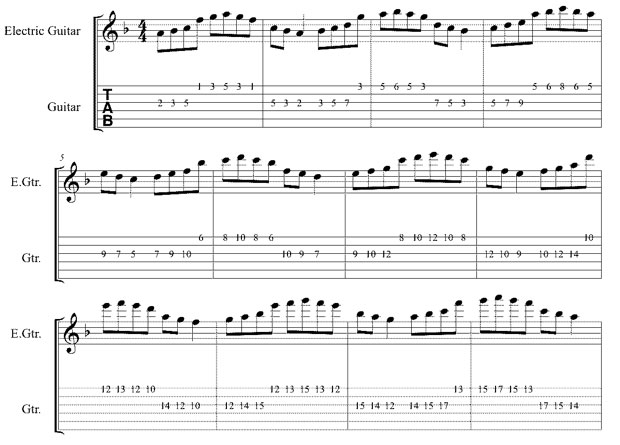
String set 2, B and D strings:
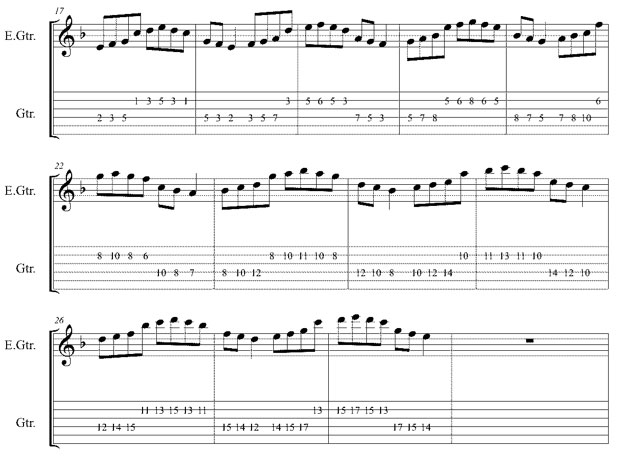
String set 3, G and A strings:
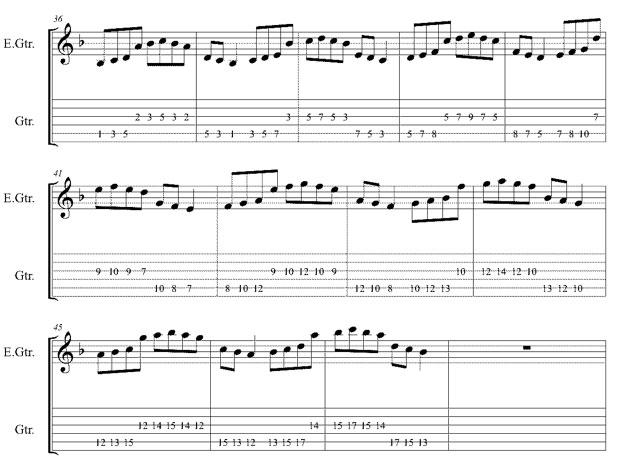
String set 4, D and low E strings:
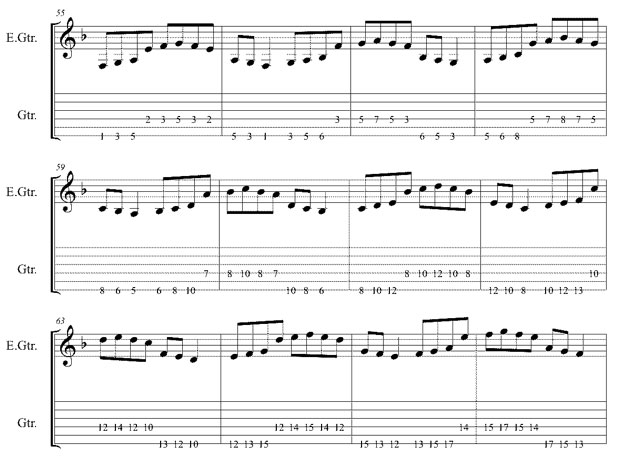
To further learn and integrate this approach to your playing, try improvising with this technique using only one string set at a time. Move up and down one string and then hop over to the other string in the set, keeping in mind to be as melodic as possible at all times, rather than trying to shred through the scale. Being limited to only two strings at a time will force you to approach the instrument in a way that you may not have possibly explored before.
Steve Booke is a composer for film and TV from the New York area. His compositions range from orchestral to metal to world styles from every corner of the planet. A graduate of Berklee College of Music, Steve has played guitar for more than 28 years. He has recorded 10 albums of his own and has played on countless others. He plays gigs in the NY area and tours the East Coast with a variety of bands. He has performed with Ben E. King and members of Mahavishnu Orchestra. He endorses D'Addario/Planet Waves, Larrivee Guitars, Levy's Leathers, Peavey, Stylus Pick, Finale PrintMusic, Pigtronix, Tech 21, Toontrack, Graph Tech, Seymour Duncan, Waves, Studio Devil and L.R. Baggs. His music is available on iTunes and Amazon. Steve is now offering Skype lessons and can be contacted at info@stevebooke.com. Visit stevebooke.com and Facebook.com/SteveBookeGuitaristComposer.
Get The Pick Newsletter
All the latest guitar news, interviews, lessons, reviews, deals and more, direct to your inbox!
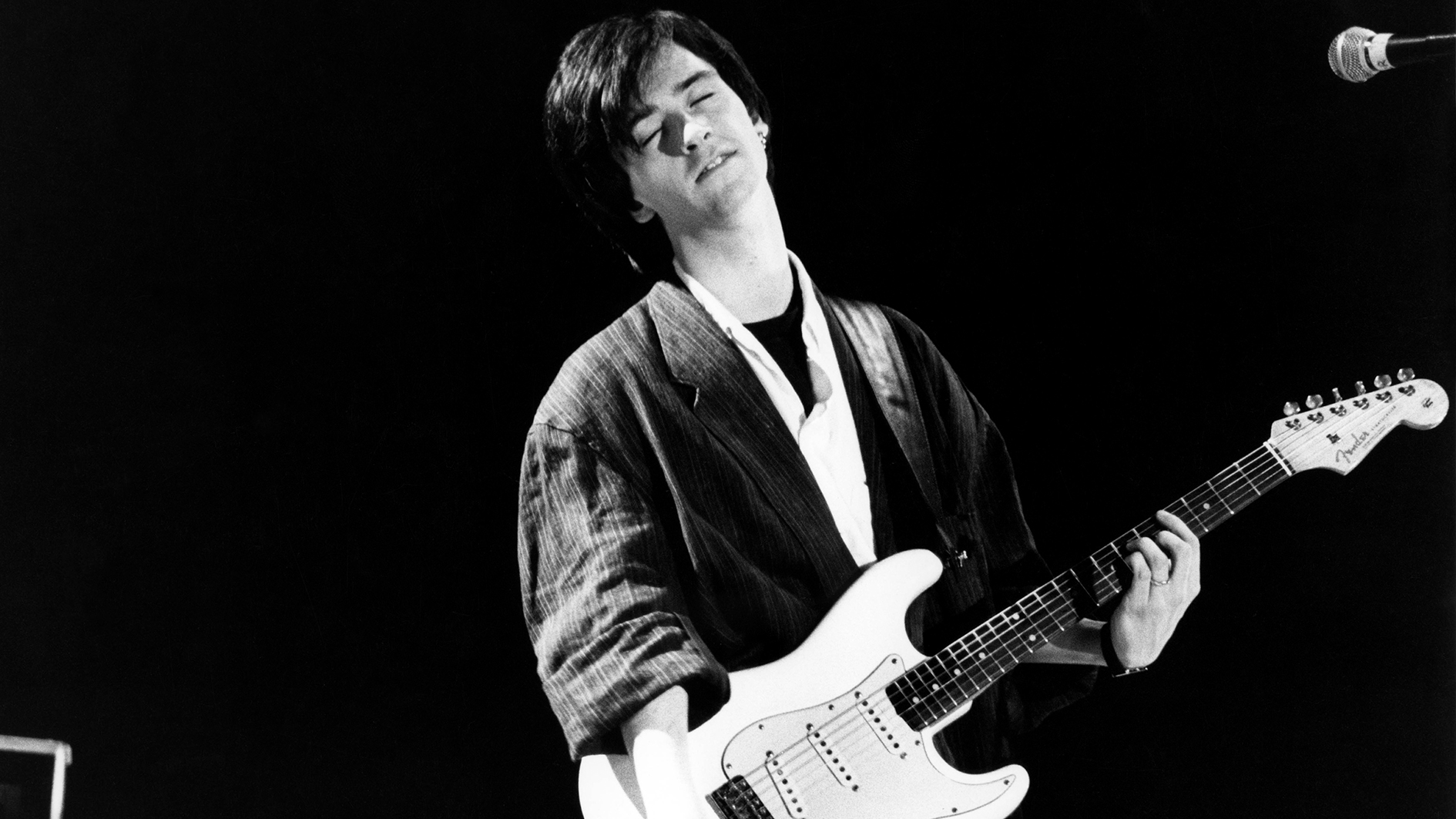








![Joe Bonamassa [left] wears a deep blue suit and polka-dotted shirt and plays his green refin Strat; the late Irish blues legend Rory Gallagher [right] screams and inflicts some punishment on his heavily worn number one Stratocaster.](https://cdn.mos.cms.futurecdn.net/cw28h7UBcTVfTLs7p7eiLe.jpg)
